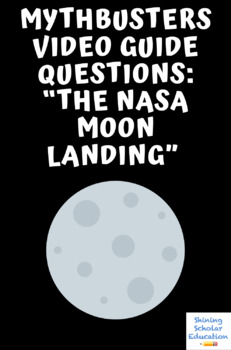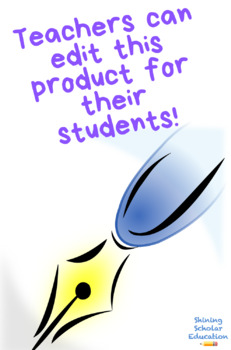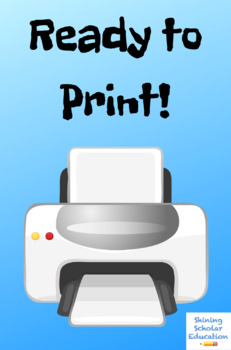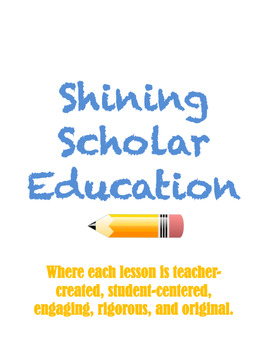Mythbusters Video Questions: NASA Moon Landing (22 Question Total)
- Word Document File
Description
Video guide questions for the Mythbusters episode: Moon landing Hoax. Great to keep the students focused. Word for word from video. Link to stream episode online as well. Key included.
***PLEASE NOTE: Due to copyright laws, we cannot include the video for MythBusters as it is property of The Discovery Channel, but is available on many streaming platforms. Please consider this before purchasing!
Standards:
(i) To develop a rich knowledge of science and the natural world, students must become familiar with different modes of scientific inquiry, rules of evidence, ways of formulating questions, ways of proposing explanations, and the diverse ways scientists study the natural world and propose explanations based on evidence derived from their work.
(ii) Scientific investigations are conducted for different reasons. All investigations require a research question, careful observations, data gathering, and analysis of the data to identify the patterns that will explain the findings. Descriptive investigations are used to explore new phenomena such as conducting surveys of organisms or measuring the abiotic components in a given habitat. Descriptive statistics include frequency, range, mean, median, and mode. A hypothesis is not required in a descriptive investigation. On the other hand, when conditions can be controlled in order to focus on a single variable, experimental research design is used to determine causation. Students should experience both types of investigations and understand that different scientific research questions require different research designs.
This lesson is student-centered meaning:
--it allows you to become a facilitator
--happier teachers
--happier students
--happier administrators
Check out these other awesome, related resources!
Space & Solar System Video Links and Questions
Earth's natural resources Quiz 7 questions W/ Key
"The Scientist Rap" music video
The Proton, the Neutron, and the Electron (A Funny Science Short Story)
"The Scientist Rap" rap & hip-hop MP3 music file
Works cited page for projects and research
Weathering, Erosion and Deposition Notes/Drawings
Earth Sun Moon Astronomy Research Project W/ All Forms and Score Sheet
Newton's 3 Laws of Motion Notes and Quizzes
Adaptations and Environments Graphic Organizer
Dominant VS Recessive Genes PowerPoint Presentation
Asexual and Sexual Reproduction Graphic Organizer for Science
Body Systems Science Research Project
Mythbusters Viral Internet Videos Lesson
Earth's Natural Resources Research Project Lesson
Body Systems Matching Quiz Lesson
Frayer Model Vocabulary Worksheet
Heroes that Motivate Students Powerpoint Lesson
Inspirational & motivational eBook "The Little Book of Big Quotes"
Tutoring Sign-in Sheet for Teachers
Student Contact Sheet for Record, Meetings, and Parent Conferences
Student Reflection Sheet for Misbehavior Classroom Management
Simple Weekly Lesson Plan Template
Class Vote Cards for Student Titles (MVP) Most Valuable Pupil, etc.





